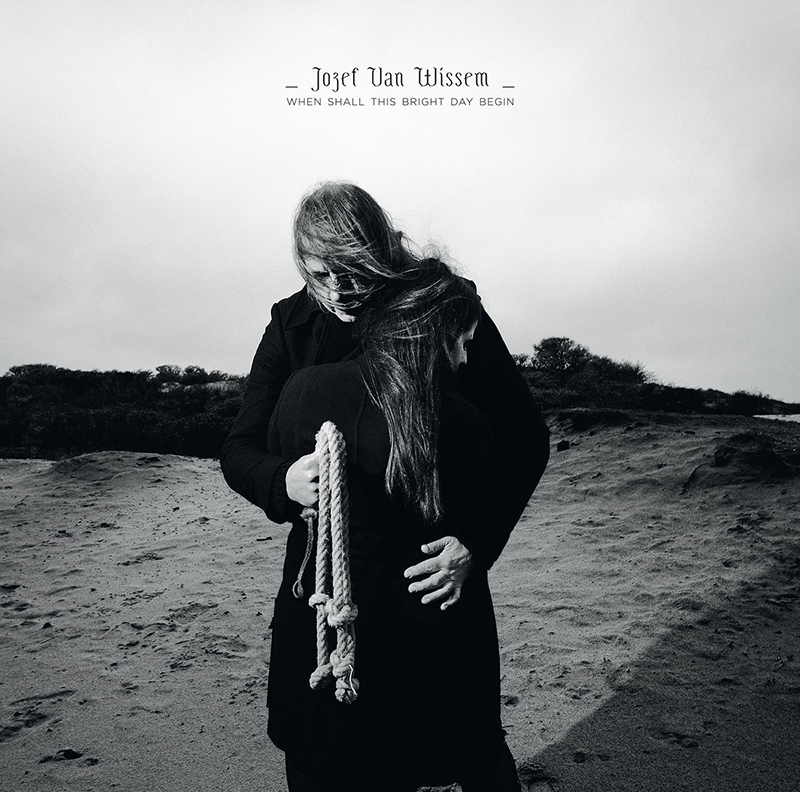Review: Jozef Van Wissem – When Shall This Bright Day Begin
National Music Reviews
Jozef van Wissem
When Shall This Bright Day Begin
incunabulum
Street: 02.02
Jozef Van Wissem = Johann Pachelbel + Sqürl
Van Wissem both embraces and breaks the traditional form of the lute, showcasing his talent as an adaptive, post-minimalist composer. He plays a series of improvisational interludes while integrating a mirroring approach: moving from bottom left to the upper right. With the lute, Van Wissem uses When Shall This Bright Day Begin as a portal to other worlds.
Van Wissem traditionally fills albums with low notes, often sitting in the corner of total darkness. While When Shall This Bright Day Begin evokes a similar darkness and eeriness as previous albums (like It Is Time For You To Return), this album is significantly higher-pitched. Van Wissem experiments with the idea that for music to qualify as “dark” it does not necessarily have to be centered on deep, low pitches. When Shall This Bright Day Begin is not devoid of low notes, however—they are simply less frequent, which makes them more significant and poignant among the high, repetitious plucks and strums.
Lyrics are scarce in When Shall This Bright Day Begin. Tracks like “You Can’t Remain Here,” are played with slow, high-pitched plucks and a low reverberation, which reveals itself as Van Wissem draws out the repeating words, “You can’t remain,” in a distorted manner. While he’s not a complicated lyricist, Van Wissem is both strategic and thoughtful with his evocative song titles.
“Detachment” features more lute chords with high and low plucks, which often sound like an adaption of Pachelbel’s “Canon D,” with slow-to-quick shifts in notes as he sings louder now than on most tracks “Do you ever feel like you want to” for over five minutes. He never finishes the sentence until the last second of the song—“Do you ever feel like you want to leave?”—eliciting a sense of “detachment,” as titled.
Van Wissem uses a slow-paced lute as a foundation for voiceovers, rooted in the idea of architecture, which could be easily overlooked as random and irrelevant. However, the notion seems characteristic of When Shall This Bright Day Begin as a whole. The album holds deliberate nuances in instrumental adaptation: van Wissem would not dismiss something as significant as the subject of a voiceover, which serves as the epicenter of two tracks. Architecture can also be considered the “construction” of something. Van Wissem’s construction is of song, album and world-building. It is at times seemingly dark and empty, others soft as it conjures spirits. The voiceover passively defines the listening experience: “On the Incomparable Nobility of Earthly Suffering” discusses being led into a secret garden, and shortly after, the song comes to an end: “There are no windows all of a sudden / You’re entirely enclosed in this experience.” When you finally feel comfortable in a track, you’re jerked in another direction. Sometimes listening to When Shall This Bright Day Begin feels like a room with no windows (“To Lose Yourself Forever Is Eternal Happiness,”) and other times, like a secret garden (“Ruins”).
Van Wissem’s collaboration with Zola Jesus is most notable on “Ruins,” a significantly more upbeat track, contrary to the mood of the album, although the sinister air persists. Zola Jesus provides a distinct yet seemingly distant female voice, accompanied by high picks and strums by Vvan Wissem on the lute. A low drumming dramatically builds as the rhythm picks up, combined with a shrill voice that evokes a sense of secrecy and wandering, desperately seeking something faraway and out of reach. –Lizz Corrigan
